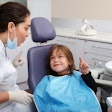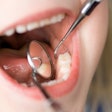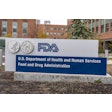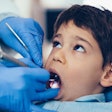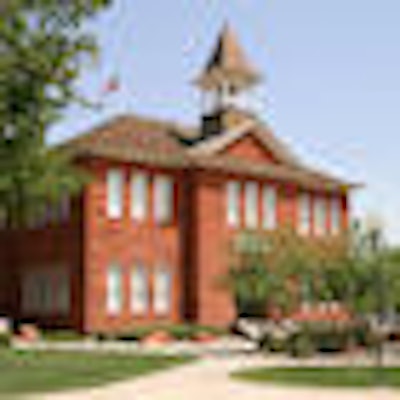
After a month of intense debate, the Louisiana Legislature has unanimously passed legislation that would regulate school-based dentistry. But the final bill falls far short of the near-total ban originally proposed by the Louisiana Dental Association (LDA).
The bill passed unanimously in the House of Representatives and Senate today. The bill now heads to Gov. Bobby Jindal's desk for consideration.
On Wednesday, the House rejected the Senate's version of H.B. 687, sending the bill to conference committee to toughen the language. But opponents and proponents finally both signed off on a compromise bill that would bar out-of-state dentists from practicing mobile dentistry in the state and instruct the Louisiana State Board of Dentistry to issue further regulations.
“There's every reason to believe that the regulations will improve the care of children in Louisiana.”
— Ward Blackwell, executive director,
Louisiana Dental Association
"It's not going to do the exact same thing as the bill originally filed," said Ward Blackwell, executive director of the LDA, which had proposed a near-total ban on school-based dentistry. "But based on what's done in other states, there's every reason to believe that the regulations will improve the care of children in Louisiana."
The bill's author, Rep. Kevin Pearson (R-Slidell), worked during the last two days of the legislative session to insert language in the bill specifying what aspects of mobile dentistry the board must regulate.
The board will be required to issue "guidelines and criteria" for the types of permits mobile dentists need, the kinds of services they can offer, the ways they must obtain consent from parents, the equipment they can use, and the way they dispose of hazardous waste, among other issues.
A version of the bill passed by the Senate listed these as issues the board "may" want to regulate. But a conference committee made them mandatory once again at the request of the board of dentistry. "We want a direct mandate from the Legislature, rather than 'may,' " the board's executive director, Barry Ogden, told DrBicuspid.com.
The reason, he explained, is that Federal Trade Commission (FTC) has opposed regulations of school-based dentistry that it deems anticompetitive. "We're concerned that they could be involved in our rule-making," he said.
The FTC issued a letter opposing the original version of the Louisiana bill. And it succeeded in overturning a set of regulations promulgated by the South Carolina Board of Dentistry. But the South Carolina rules were passed by the board in the face of opposition by the South Carolina Legislature. The FTC has jurisdiction over state boards, but not state legislatures, so if the board is seen as acting at the behest of the legislature, the FTC may not be able to overturn whatever rules the board passes.
The most outspoken opponent of the bill, Gregory Folse, D.D.S., said he and other school-based dentists would not object to the bill, even with the slightly tougher language, since they have always believed the board of dentistry was competent to formulate whatever rules were necessary. "This is where our coalition says this should have been all along," Dr. Folse said. "We're looking forward to working with the board to come up with reasonable regulations for mobile dentistry."
The dental board's rule-making committee planned to take up the issue July 10 and August 13 ahead of a full board meeting August 14, and has been mulling regulations for several months, Ogden said.
A handful of stationary clinics and mobile dentists have treated children in Louisiana schools for years. But the practice became controversial after the Louisiana legislature voted to increase Medicaid reimbursement for dentists to 70% of usual and customary fees. The increase made "viable" for Dr. Folse something he had long wanted to do, he said: treat underserved children in schools. Hundreds of thousands of Louisiana children have not been seen by a dentist within the past year, according to testimony before the legislature.
Dr. Folse had previously attracted national attention for his work in Louisiana nursing homes, where he learned how to set up operatories in unconventional settings. He hired 15 dentists for his Big Smiles company and struck agreements with several Louisiana schools.
But the move caught the attention of some within the LDA who noticed that Dr. Folse had contracted with an out-of-state company, ReachOut Healthcare America, to handle some of his company's paperwork. They worried that out-of-state companies would swoop into Louisiana schools and bill Medicaid for exams and preventive services, but not follow up in treating any disease they uncovered, and that this "cherry picking" would limit what services Louisiana dentists could bill to Medicaid if they treated these patients in the same year.
The LDA reached out to legislators with H.B. 687, which sought to bar school dentistry except for fluoride treatments, cleanings, and exams when offered for free, or sealants applied by either of two state-run universities.
Citing potential health and safety problems, proponents won approval for the bill in the Health and Welfare Committee of the House of Representatives. But Dr. Folse -- who is licensed in Louisiana -- and his allies fought back, defending their health and safety records, and arguing that many parents are unable or unwilling to take their children to conventional dental offices.
Over the last several weeks on the floor of the House and in the Senate Health and Welfare Committee, the bill picked up a series of amendments that steadily weakened it. On June 24, the House sent it back to a conference committee where the word "may" was changed back to "shall" regarding the issues regulated by the state dental board.
"They said they would prefer us to give them something with a little bit of teeth," Rep. Pearson told his colleagues.
In addition, Rep. Pearson worked to insert language limiting the way Louisiana mobile dentists can use of out-of-state contractors.
Gov. Jindal didn't respond to a call requesting comment, but proponents expect him to sign the bill into law.
Copyright © 2009 DrBicuspid.com













